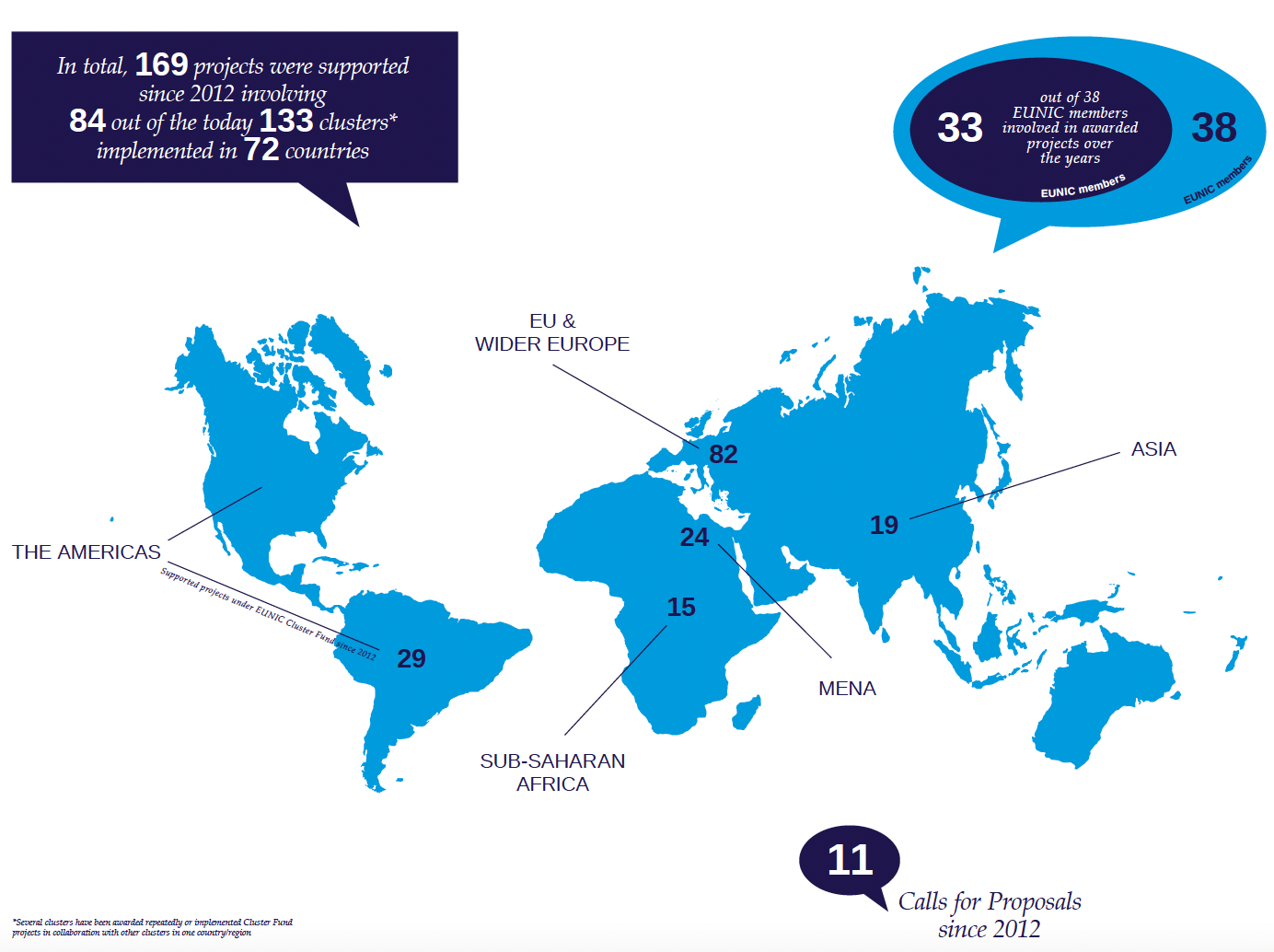
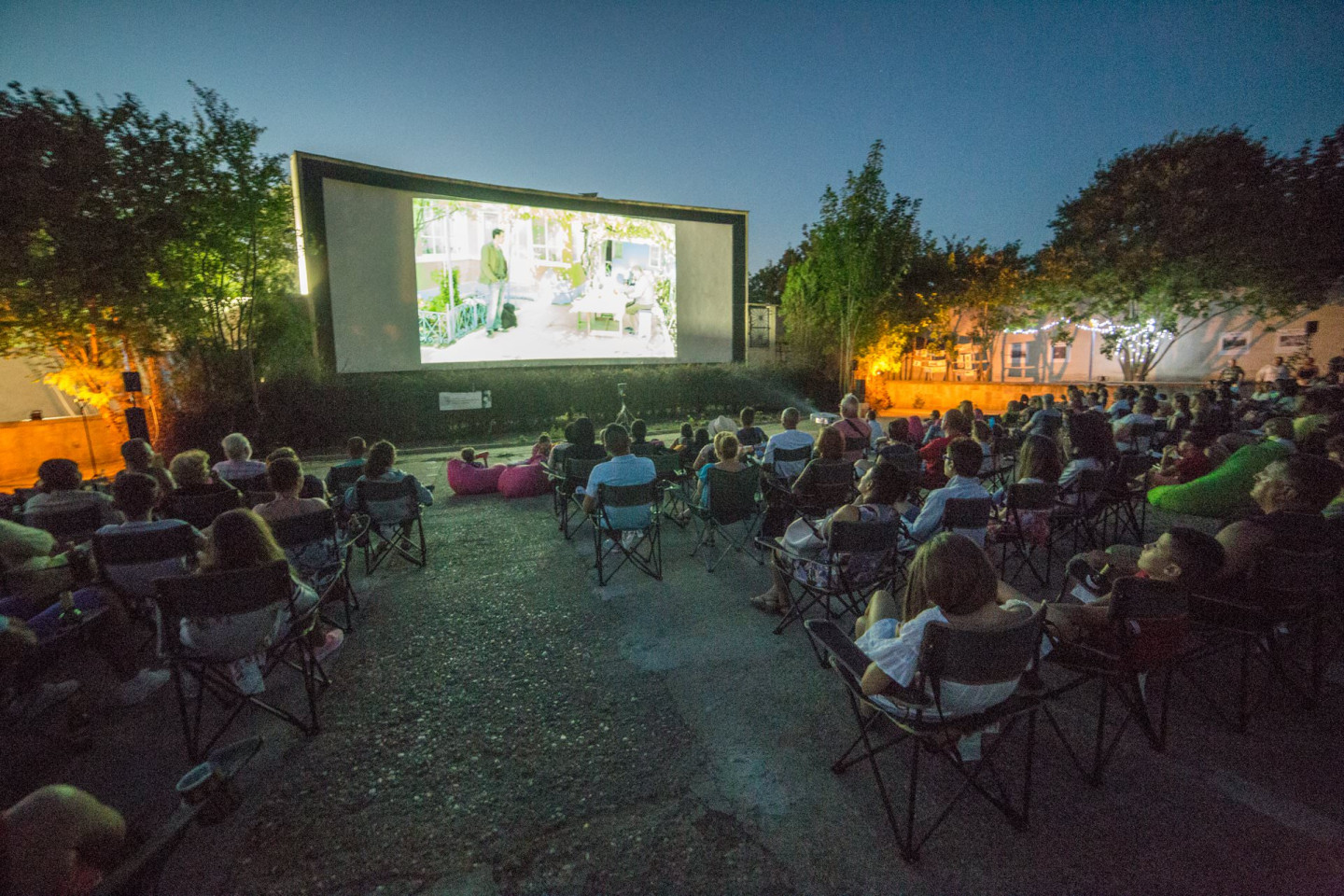
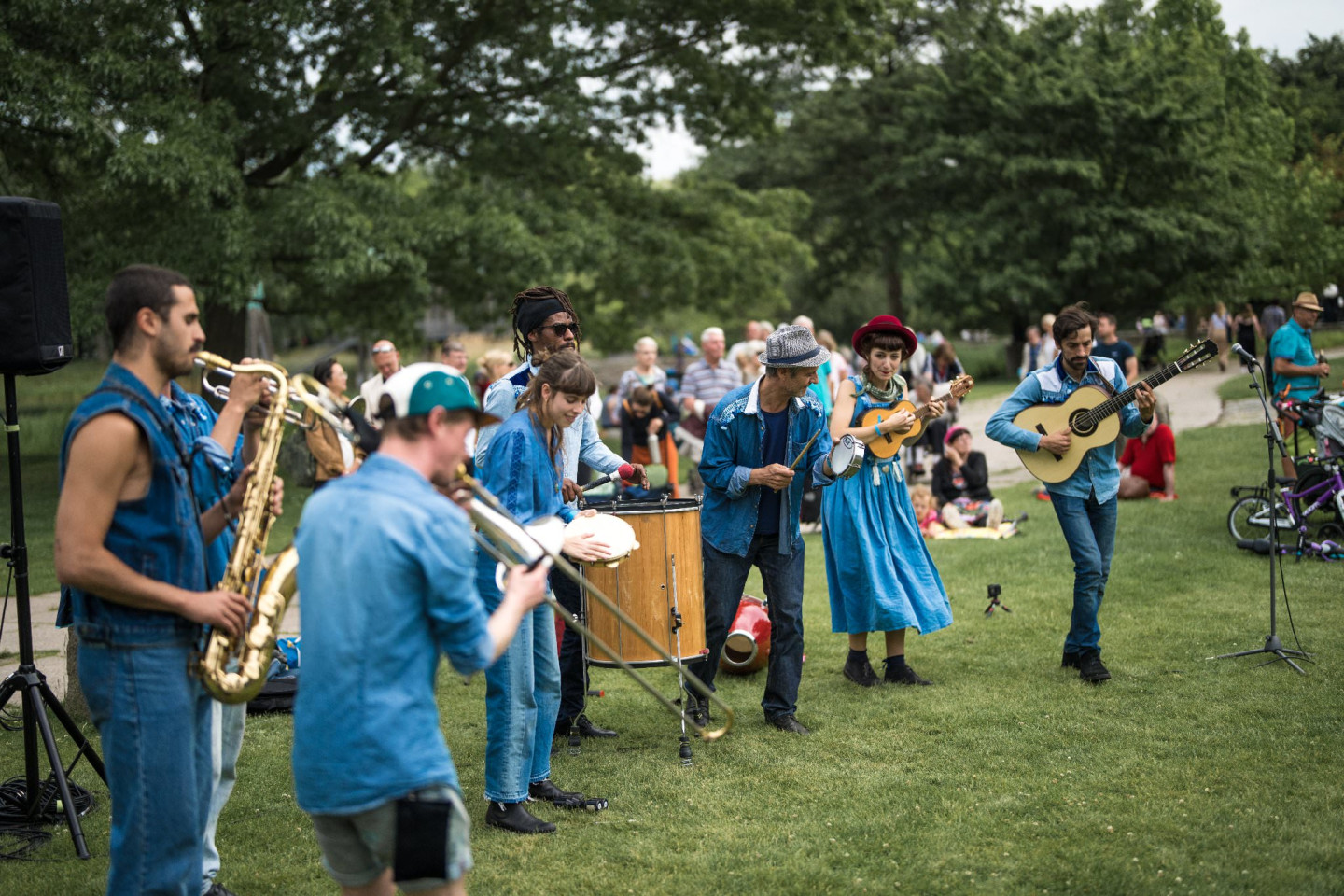
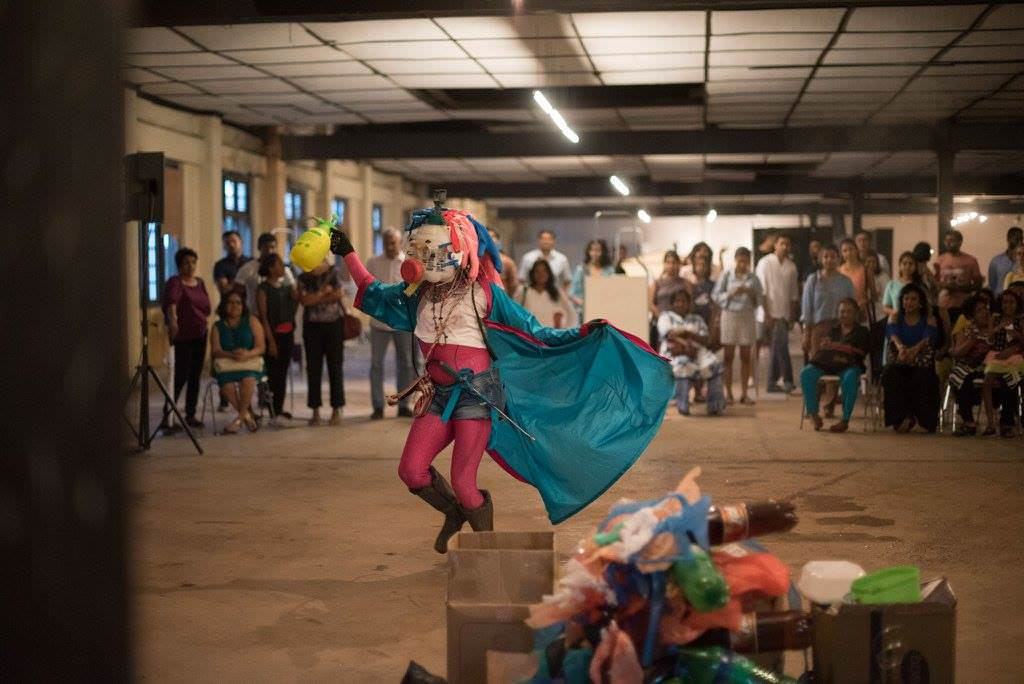
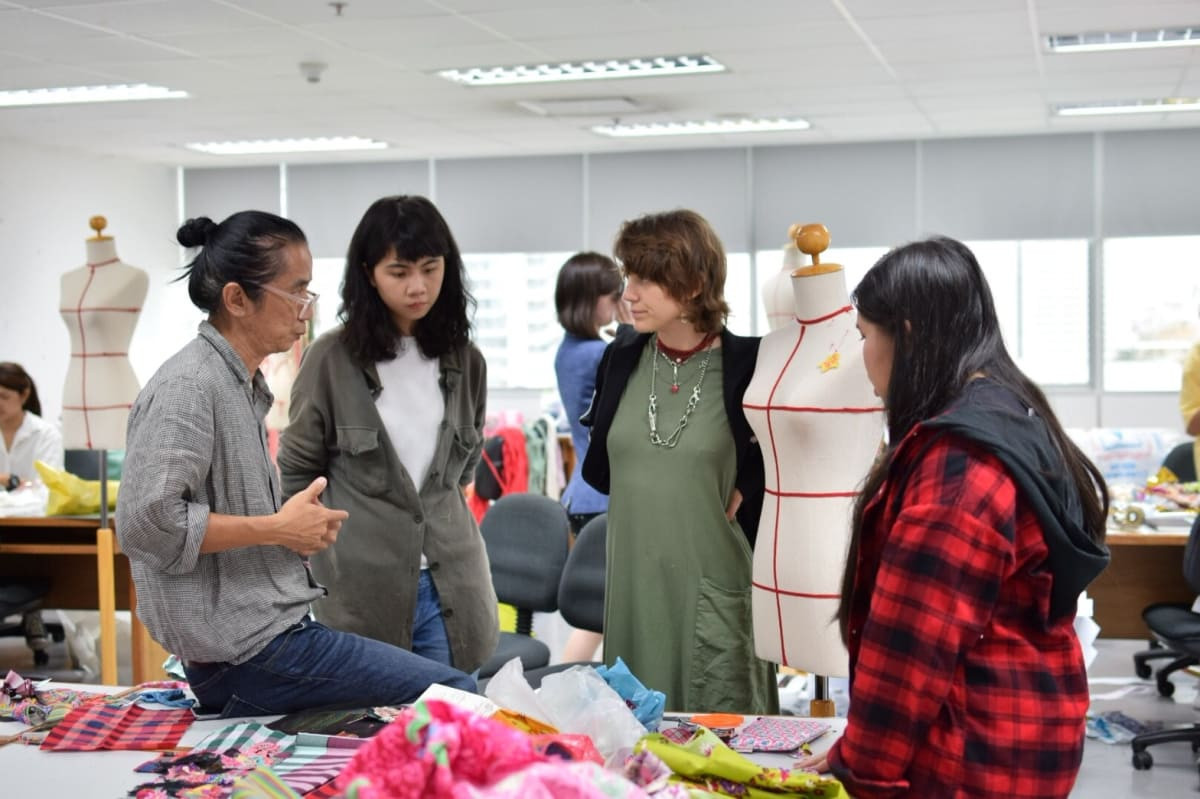
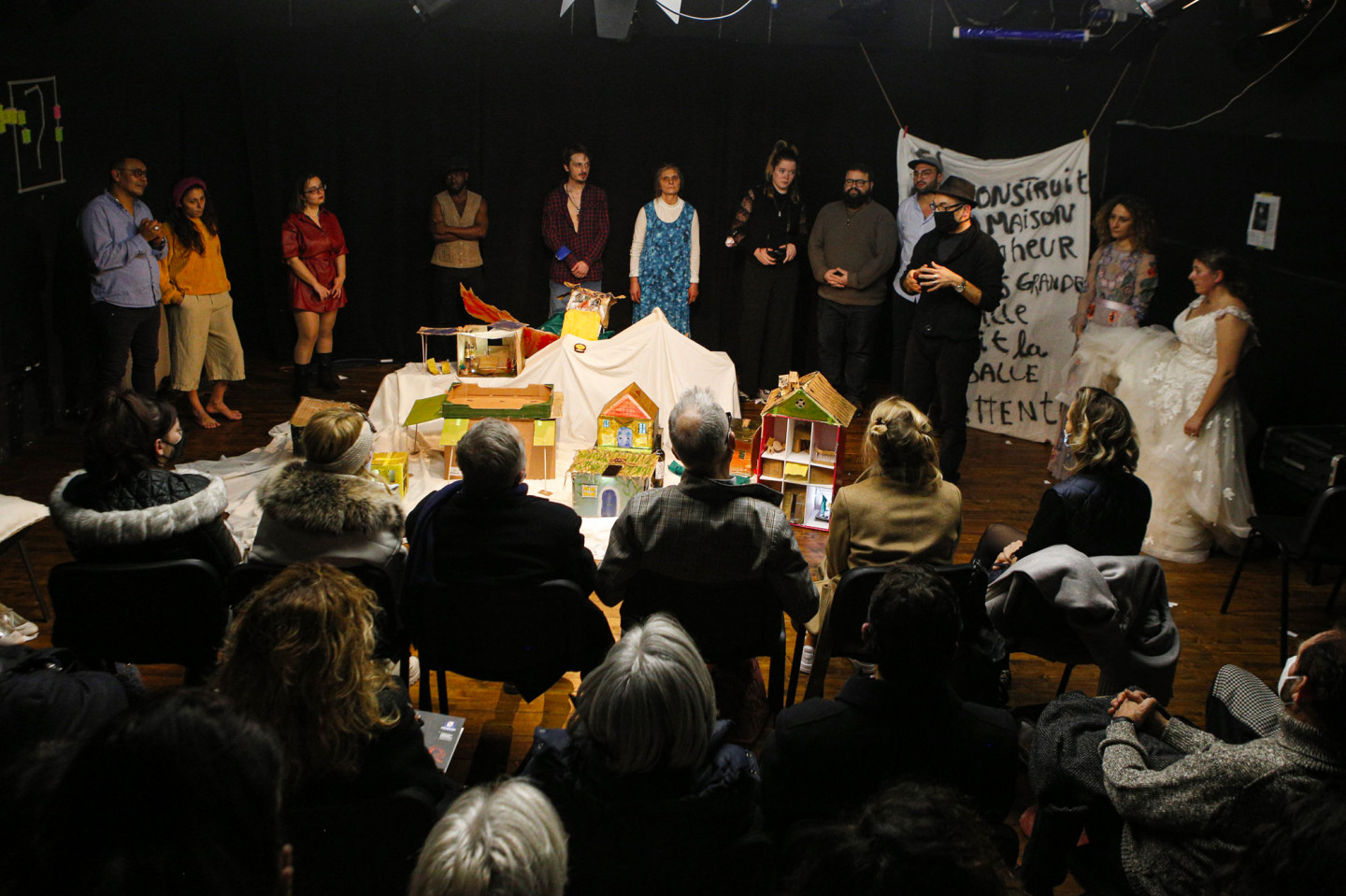
EUNIC Cluster Flash Report: Now available
The EUNIC Cluster Fund is celebrating its 10th anniversary. On this occasion, EUNIC has commissioned a research taking a closer look at the development of the cluster network over the years.






EUNIC's network has grown rapidly in the last ten years, from 80 clusters in 2012 to 133 clusters in 103 countries in May 2022. This development goes hand in hand with increased ambitions and a clearer strategic vision linked to the development of the EU's policy on international cultural relations. With support of the EU's Creative Europe programme, EUNIC has put a focus on cluster development in the past 10 years, offering a structured programme with regional seminars, workshops, webinars, and the development of tools such as the Cluster Strategy and the Cluster Guidelines to support colleagues working in EUNIC clusters worldwide.
In parallel, the EUNIC Cluster Fund, established in 2012 and based on voluntary contributions of EUNIC members, has become a key internal strategic instrument to financially support collaborative projects and enable cluster development around the world in line with EUNIC's commitment to the cultural relations approach. Over the years, the Cluster Fund has seen not only increased involvement of EUNIC members and a raise in the total number of projects supported, but also an increase in local partners involved in the project activities.
Taking the occasion of its 10th anniversary to take stock of the cluster and network development through the lense of the EUNIC Cluster Fund, EUNIC has commissioned a report to share success factors and practical recommendations with the network. The full report can be found here.
The report identifies success factors which have helped clusters to develop organisational structures and implement meaningful projects together with local partners. It provides recommendations for EUNIC clusters, EUNIC members' headquarters and the EUNIC office in Brussels. Finally, it also reviews how to take these success factors further in order to drive the development of the network in the future.
Within others, the research found that receiving a Cluster Fund grant helps clusters to develop, define and deliver their strategic framework and to clarify their identity as cluster. It has a structuring effect on working mechanisms within a cluster and it motivates colleagues and stimulates a collaborative approach between cluster members and diverse local partners. It has been proven to be an incentive for clusters to try out different formats, and can inspire the development of larger-size projects, independently or in cooperation with partners such as EU Delegations, due to its potential of scalability for longer-term project ideas and cooperation.
The research was based on in-depths interviews with 12 representatives from 7 EUNIC clusters worldwide as well as on the results of an online cluster network survey that was conducted between March and May 2022.
Additionally, you can find a brochure visually highlighting the Cluster Fund and cluster network's developments over the last 10 years here.
